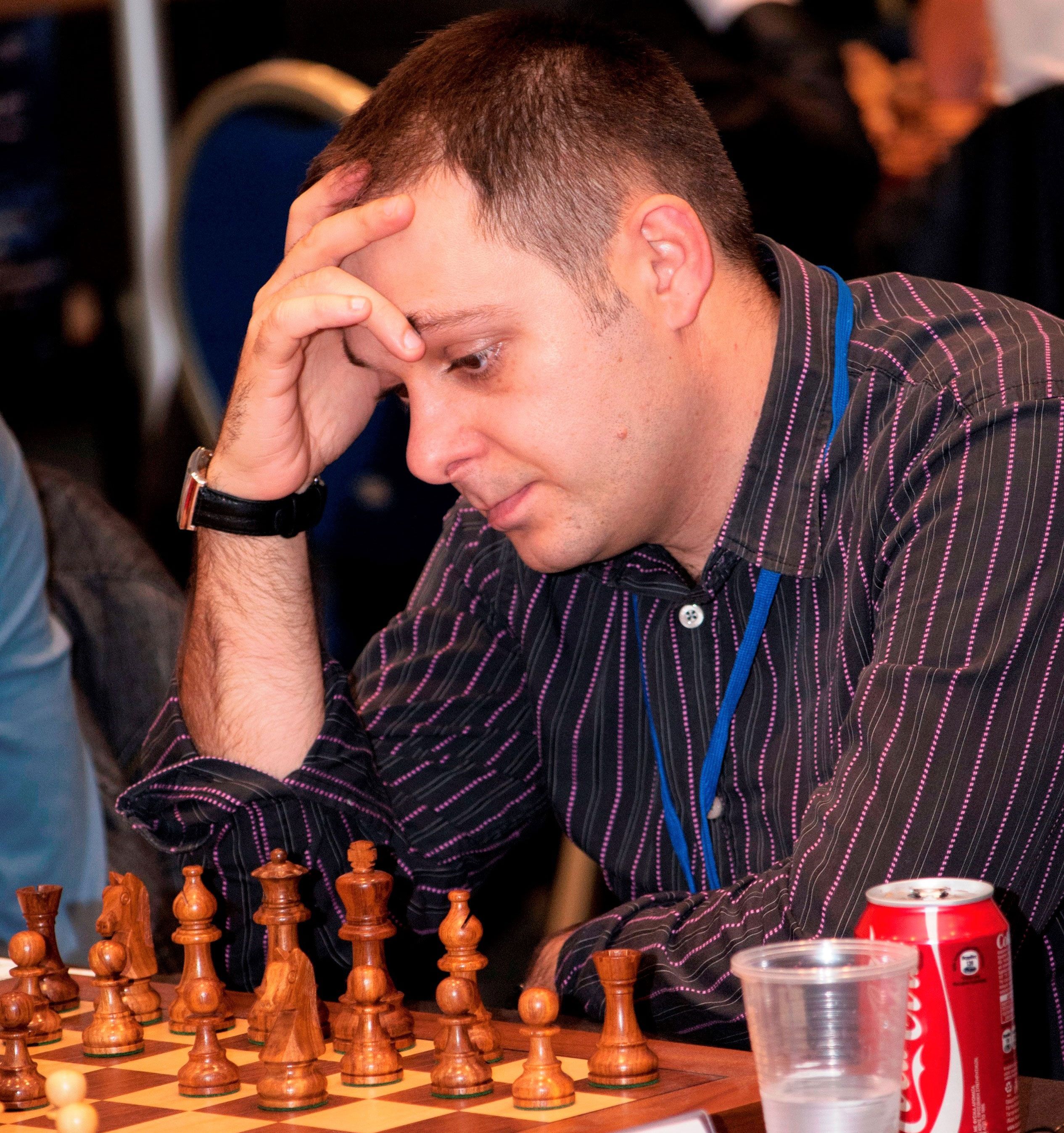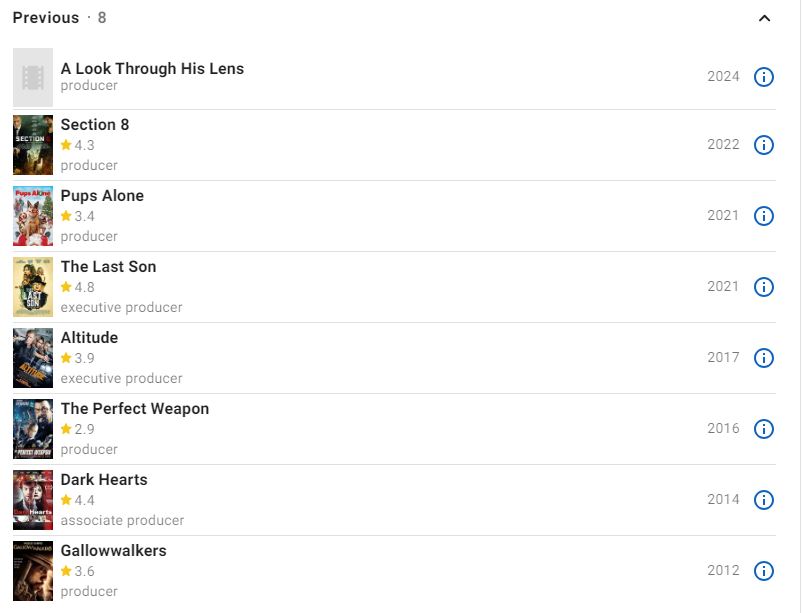
FIDE Invalidates IM Norm Scored By Hollywood Producer With 9 Short Draws
FM Brandon Burrows achieved his first IM norm by winning one game and making nine draws that lasted an average of 10 moves. Now the World Chess Federation (FIDE) has invalidated the Las Vegas tournament and U.S. Chess has confirmed an investigation into the matter.
The prevalence of top players making quick draws, evidenced by the controversy at the World Blitz Championship last month, has become a familiar frustration for chess fans. To combat the phenomenon, organizers have put in place restrictions such as banning draw offers before move 30, or not permitting any offers at all.
However, in the Bridgeopolis Thanksgiving Round Robin in Las Vegas in December, a six-player double round-robin tournament, there were no restrictions in place, which saw a staggering draw rate of 77 percent. The average game lasted only 22 moves, leaving merely seven out of 30 games with a decisive result.
The winner was GM Ehsan Ghaem Maghami who scored 6/10, but the spotlight shifted to the only non-grandmaster in the event, Burrows, who clinched his first IM norm with 5.5 points.
| # | Title | Player | Federation | Rating | Points |
| 1 | GM | Ehsan Ghaem Maghami | 2481 | 6 | |
| 2 | FM | Brandon Burrows | 2368 | 5.5 | |
| 3 | GM | Richard Bitoon | 2362 | 5.5 | |
| 4 | GM | Alexander Mista | 2491 | 5 | |
| 5 | GM | Vladimir Georgiev | 2395 | 4.5 | |
| 6 | GM | Enrico Sevillano | 2318 | 3.5 | |
Burrows' norm has raised eyebrows in the chess community as it was achieved through eight draws that lasted 13 moves or less. One draw lasted 22 moves, while his single win lasted only 30 moves.
His 10th-round game, a draw against tournament winner Ghaem Maghami, lasted 11 moves.
The unusual event was first pointed out by Chris Bird, an international arbiter renowned for his work on the Grand Chess Tour, on X/Twitter.
Talk about quick draws getting you what you want, here's a recent IM norm for a USA player achieved in a 6 player DRR in Vegas, https://t.co/eGF4jz5yUc Only 2 games went >13 moves, one of them the 1 win he needed to get to 5.5 pts, amazingly the score needed for the norm! 🤯 pic.twitter.com/5Wl7a9xHmo
— Chris Bird (@ChrisBirdIA) January 11, 2024
Bird told Chess.com: "I've got absolutely no evidence that anything was fixed, but it certainly doesn't feel right that this result achieved an IM norm. I did, at one time when I was FIDE Events Manager for U.S. Chess, reject a norm achieved by the same player because of an issue I had with the tournament, but that was actually unrelated to the player and more to do with how the event was run and the arbiter overseeing the event."
He pointed out that international events have to go through their national federations for approval, in this case U.S. Chess, before being submitted to FIDE for rating and norm purposes.
"If they choose to investigate something, I feel that would at least show they are interested in clamping down on potentially suspicious events. Of course I would have preferred U.S. Chess to do their due diligence prior to submitting the event for rating and authenticating the norm, which maybe they'll say they did?" Bird says.
Grandmaster Says He Was Invited By Burrows
Chess.com has been in contact with GM Vladimir Georgiev, one of five grandmasters at the tournament. The 48-year-old Bulgarian-Macedonian grandmaster, who now resides in Florida, says he received a phone call from Burrows one day before the tournament asking him whether he would come to Las Vegas.

He was able to get a flight the next day, but had to delay the first round by an hour. After losing the first game, he changed hotels three times before returning to play round two against Burrows.
"My first idea was to play. And I thought "if I don't beat him, who else am I gonna beat among the five GMs there?" But I was so sleepy, so I thought I'd offer a draw before I blunder anything. He spent 50 minutes, and he agreed."
According to Georgiev, Burrows told him after the game that he wanted to play, but accepted the draw offer as a friendly gesture, knowing his opponent had been traveling.
Georgiev says he received what he considers a fairly normal fee of $1,300 for playing in the event, in addition to other expenses covered. He calls it one of the best-organized tournaments he has played, and one that he would gladly play again.
"I really liked the tournament. They were all the time asking if I need anything. I can't say anything bad about it," emphasizing that he did not see any games being pre-arranged or "fixed."
FIDE Confirms Invalidation, U.S. Chess Conducts Investigation
Burrows gained 32 rating points from the tournament, as shown on FIDE's website. However, in an email to Chess.com, the chairperson of FIDE's Qualification Commission Sabrina de San Vicente says the event will be invalidated and not count for norms: "FIDE will prepare a statement on its policy to be published soon."
U.S. Chess also confirmed it is aware of the incident and is set to conduct an investigation into the matter.
US Chess processed over 160 FIDE rating reports in November and December of 2023. An investigation is being conducted by US Chess as to the circumstances surrounding this event. If there are any sanctions that result from this investigation, those will be published in accordance with existing US Chess procedures.
John Fernandez, a member of the U.S. Chess Executive Board, added that the incident "looks totally unacceptable":
This guy is someone I’ve known for a quarter of a century but this looks totally unacceptable. I’m personally going to look into this. https://t.co/ViQ23fnt0b
— John Fernandez (@jfernandez) January 11, 2024
Thomas Brownscombe was the chief arbiter of the event and tells Chess.com that he doesn't think the rules allow an arbiter to interfere if two players want a draw through reasonable moves.
"When two players sit down at a chess board and play some reasonable looking opening moves and then one player offers a draw and the other player accepts, what should the arbiter do?" he asks.
He points to Article 9.1 of the FIDE Laws of Chess on draw offers, that says unless the event has restrictions in place preventing players from offering or accepting a draw, players do not need the arbiter's permission. In this tournament, there were no restrictions.
"I have scoresheets of these games signed by both players showing that this is how the games were played. If FIDE wants to change the tournament chess culture so that players in FIDE-rated events cannot agree to a short draw, I respectfully suggest that FIDE should change the way in which the FIDE Laws of Chess are written."
Brownscombe says he has scheduled a meeting with U.S. Chess on Friday to discuss the tournament.
"I will truthfully answer any questions that any USCF or FIDE official has regarding this tournament. And I will provide the appropriate USCF official with the signed scoresheets from the tournament if I am asked to do so."
Chess Master Turned Hollywood Producer
Burrows is a FIDE master who achieved the number-one rating rank for his age in his youth. He was one of the youngest masters in United States history at the age of 12, according to his own website.
The 38-year-old had a rating of 2178 at the end of 2019, but then gained almost 140 points through two closed six- and 10-player norm events. He won another closed six-player event in Las Vegas in January, scoring 7 out of 10, but fell half a point short of the norm requirement.
He now has a career in the film industry, as a producer and writer working with stars such as Wesley Snipes, Steven Seagal and Dolph Lundgren. His latest movie, set to be released in February, stars actors such as Dermot Mulroney, Frank Grillo, Jaime King, and Mekhi Phifer.

In an interview with Variety in 2021, he spoke about how his chess skills helped him in the industry.
There’s an old saying: Not all artists are chess players, but all chess players are artists. Chess is not just a creative game, but also a meditative art. It helped prepare me incredibly well for producing. In chess, you learn to trust your instincts and make snap decisions on the fly. Chess utilizes and develops one’s intuition, which is key in producing. In production, like chess, you constantly face multiple shifting variables and have to calculate the variations of outcomes very quickly. When you don’t have the time to calculate to the endpoint, you have to make a snap decision, and to trust the choice you’re making. Chess has been invaluable in that regard. It appears time and again in producing, whether it’s making a creative choice, a casting decision, a sales/distribution strategy, on-set choices or deciding on a script.
Burrows did not respond to Chess.com's request for comment to this story.


